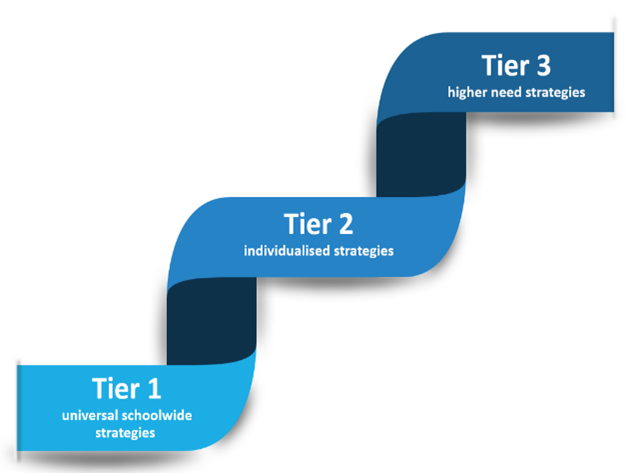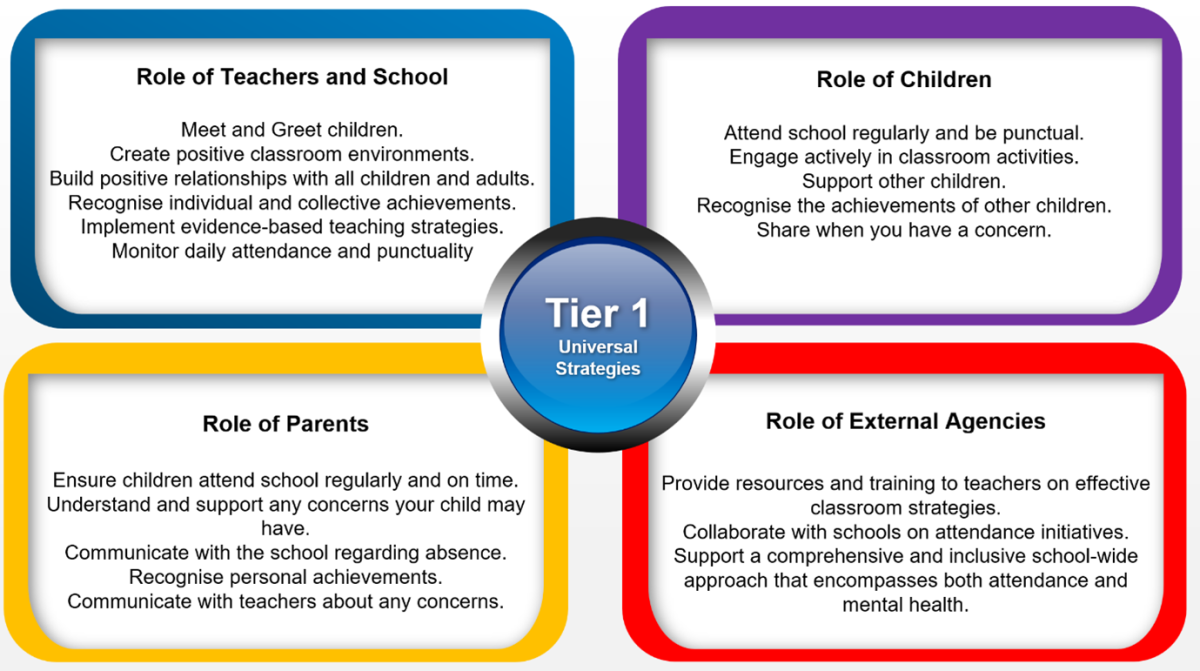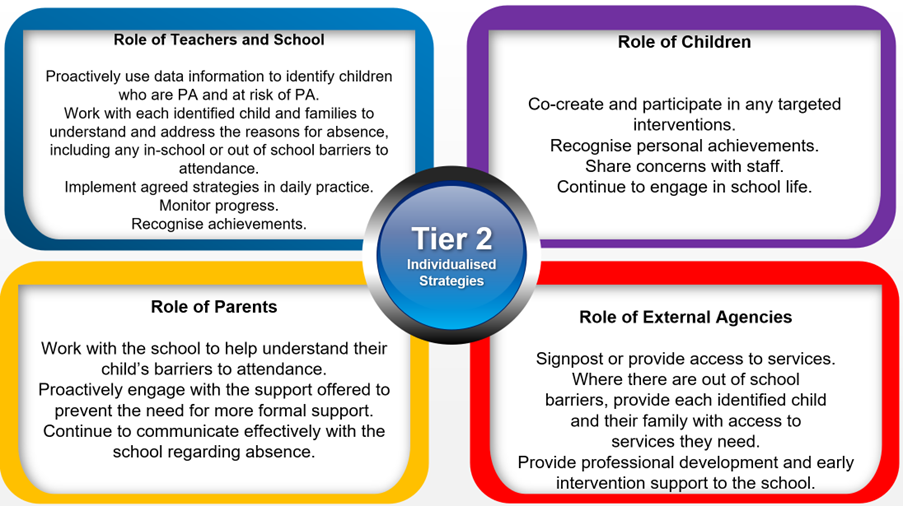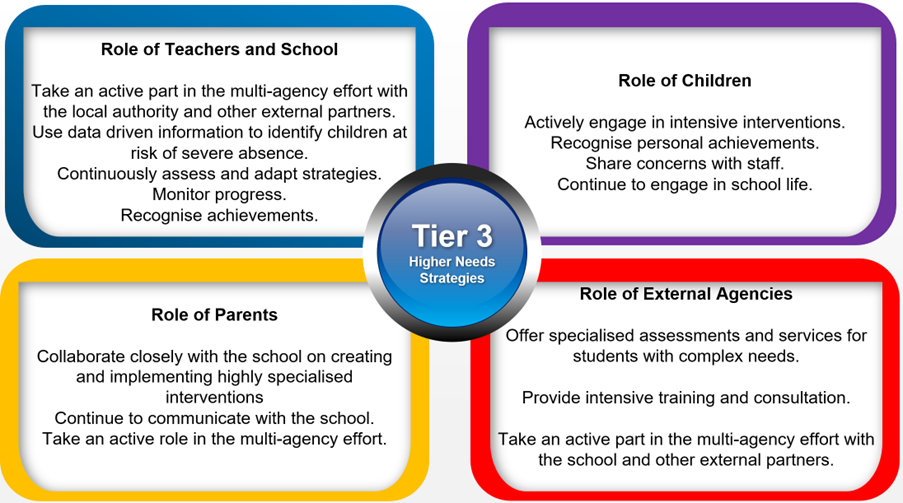Attendance


Inclusive Attendance
Stockbridge Village Primary is proudly recognised as an Inclusive Attendance school. Our unwavering commitment to attendance centres around child-centric actions, evidence-informed practices, and a shared understanding of everyone’s roles and collective responsibilities to promote exceptional attendance.
At Stockbridge Village Primary, we are driven by an unwavering commitment to making school attendance a top priority, fully integrated with every aspect of school improvement. Using the Inclusive Attendance Model – the first and only accredited programme providing the pedagogy of practice – we support children and families to connect, belong, and thrive.
Inclusive Attendance Professional Development Model
The Inclusive Attendance professional development model fundamentally guides our attendance approach. Comprising six tailored Learning Modules, this model empowers us to deepen our understanding by facilitating continuous professional learning for all staff. Within this model, the four domains of practice ensure the provision of professional learning, professional development, evidence-based practices, and exemplary leadership and management seamlessly integrate theory into practice.
Inclusive Attendance Implementation Programme
Each year, Stockbridge Village Primary School reviews and further enhances attendance practices through dedicated participation in the Inclusive Attendance 7-month implementation programme. This investment allows us to remain at the forefront of educational change and extends unparalleled support to our children and their families, equipping them with access to the finest possible support.
Impact and Collaboration
Through our ongoing year-long implementation programme, and five year long-term strategy, we deliver measurable impact by creating an inclusive attendance culture and improving outcomes for all children and young people. We are outward-facing in our approach and value working regionally and nationally, through a systems-led model with other schools and external agencies. We continually strengthen and enhance our offer year on year. This work is underpinned by ongoing accredited CPD for staff each year, ensuring sustainable change, stronger outcomes for children and young people, and a deeply embedded culture of collective responsibility.
Multi-Tiered System of Support
To guarantee a comprehensive approach to attendance, we implement a Multi-Tiered System of Support. A Multi-Tiered System of Support (MTSS) for school attendance involves three tiers of intervention, with roles for teachers, the school, children, parents, and external agencies – including the Local Authority. Data-driven decision-making and training requirements are pivotal to the implementation of the system. The system aligns with the Department for Education’s (DFE) “Working Together to Improve School Attendance” guidelines.
Tier 1 – Universal Approach: Establishing a baseline universal attendance approach that benefits all children.
Tier 2 – Individualised Strategies and Early Help Support: Tailoring strategies to individual needs and providing early help support for persistent attendance challenges.
Tier 3 – Higher Needs Strategies Support: Furnishing specialised support for children, young people, and families with complex attendance requirements, including access to external agency support when necessary.
Recognition-Based Approach
Our attendance philosophy is rooted in a recognition-based approach that recognises both personal and collective achievements. This approach serves to thwart isolation, prevent victimisation, cultivate positive environments, nurture relationships, foster inclusivity, and ultimately cultivate intrinsic motivation among our children, families, and staff.
The Importance of School Attendance
School attendance is not merely a requirement but a fundamental pillar of education. It plays a pivotal role in shaping academic success, personal growth, and future prospects, making it an indispensable aspect of any educational system.
- Community Well-being: High levels of school attendance contribute to the overall well-being of communities.
- Knowledge Acquisition: School is where children acquire knowledge and skills that are crucial for their personal and professional growth. Missing days means missing out on valuable learning opportunities.
- Social Development: School provides a vital social environment for children and adolescents to interact with peers, develop friendships, and learn essential social skills. Consistent attendance ensures children remain connected to their peer group.
- Building Routine: School attendance establishes a structured routine in children’s lives, teaching them time management and responsibility, which are valuable life skills.
- Academic Achievement: Regular attendance directly correlates with academic success. Children who attend school consistently are more likely to keep up with the curriculum, perform better in exams, and improve their life outcomes.
- School Engagement: Children who attend school regularly are more likely to engage in extracurricular activities, sports, and other enriching experiences that contribute to their overall development.
- Legal and Parental Responsibility: Parents or guardians are legally responsible for ensuring their child’s regular school attendance. Failing to do so can lead to legal consequences.
Important information about attendance….
From August 2024 Knowsley Attendance Service have now stated that any unauthorised absenteeism up to 10 sessions (5 days) within any 10 week period can mean that each parent may be issued with a Penalty Warning Notice and a subsequent fine for any unauthorised absences for each of their children.
ATTENDANCE…
Make Everyday Matter at SVP
Stockbridge Village Primary School is committed to providing the best educational experience for all children and good attendance and punctuality is critical to this outcome.
Each academic year has 190 school days, this leaves 175 non-school days for family time, holidays, visits and appointments.
If a pupil is absent for just 1 day each term that equals 6 days or 39 hours a year of lost learning.
Every Day Counts!
It is vital that pupils attend school, on time, every day in order to gain the greatest benefit from their education.
Attendance
The school door is opened at 8.40am and registration takes place at 8.55am and school finishes at 3.10pm.
Our typical school week for children is 31 hours and 50 mins for Key Stage 2 and 31 hours 25 mins for Key Stage 1 children.
We expect pupils to arrive and to be collected punctually at the start and end of each day. If your child arrives after 8.55am they will be recorded in the registers as late.
Persistent lateness, 10 or more recorded late marks in one half term, will result in a request for a parental meeting to discuss any support the school can offer to improve punctuality.
If your child arrives after 9.30am it will be recorded as unauthorised. We will work with the School Attendance Officer, Kylie Banks for those children who are recorded as having unauthorised absence, due to lateness after registers close, three or more times in one half term period.
Absence
If your child is significantly unwell and unable to attend school, we request that parents/carers telephone the school office or contact us through the school app on each and every day of the absence, before 8.45am and clearly state the reason for their absence.
Where possible, we ask that medical appointments are arranged outside of the school day. Where this is not possible, please bring the appointment letter/card to the school office in advance.
Requests for holiday
There is no automatic entitlement, in law, to time off during term time.
All requests for a leave of absence must be, by law, made in writing and in advance. As a school, we request parents use the ‘Holiday Request Form’ which is available from the school office or from the link below. Holiday requests are only authorised in exceptional circumstances. If you choose to remove your child from school when the request has been denied it will be recorded as unauthorised and the school may request the Local Authority issue a penalty notice.
Frequently Asked Questions
Q. What is a good attendance percentage?
A. The school’s attendance target for all our pupils is a minimum of 95%. The National Average Attendance for a child at Primary School is 95%
Q. Why is attendance important?
A. If your child is of compulsory school age and is registered at a school, it is essential that they attend. Excellent attendance at school is important to allow a child to fulfil their potential.
Q. What is poor attendance?
A. Anything below 95% attendance is worrying as your child has missed more than 8 days of school, resulting in a lower chance of achievement. It makes it harder for the child to progress if they are missing key learning opportunities.
Q. What impact will low attendance have on my child?|
A. Low attendance will impact on your child in many ways; educationally and socially. Pupils who have low attendance are more likely to become isolated from their social group and underachieve academically.
Q. What will happen if my child’s attendance falls below 95%?
A. Stockbridge Village Primary School monitors pupil attendance throughout the year. You will be sent a letter to inform you of the attendance percentage and you may be invited to a School Attendance Meeting at the school.
Q. Isn’t my child entitled to 10 days holiday days a year?
A. No. The School can only authorise an absence in exceptional circumstances. Remember there are 175 non-school days per academic year to spend on family time, visits, holidays and appointments etc.
Q. What is meant by ‘genuine medical reasons’?
A. Diarrhoea, sickness, childhood illnesses e.g. measles, chicken pox, extremely high temperatures, are genuine illnesses. Children should not stay home if they have minor coughs, colds, tummy aches and headaches. If your child is too poorly to remain at the school, the school will contact you to collect them.
If your child has a specific hospital appointment, the appointment letter must be brought into school in advance. However, where possible we ask if you could arrange appointments out of the school day. Please remember that even absence due to genuine medical reasons still affect a child’s attendance.
Always supply medical evidence wherever possible, for example: prescriptions or medication issued via GP, Walk in Centre, Pharmacy and Care of the Chemist. These may be via letter, text, email or even an appointment card/slip.
Q. What should I do if my child is absent?
A. Contact the school before 8.45am on the first day and every subsequent day of absence to explain their reasons.
REMEMBER EVERY SCHOOL DAY COUNTS TOWARDS YOUR CHILD’S SUCCESS
DID YOU KNOW…
…that 2 weeks absent from school brings a child’s attendance down to 87%
…a child who is absent a day of school per week misses an equivalent of two years of their school life





